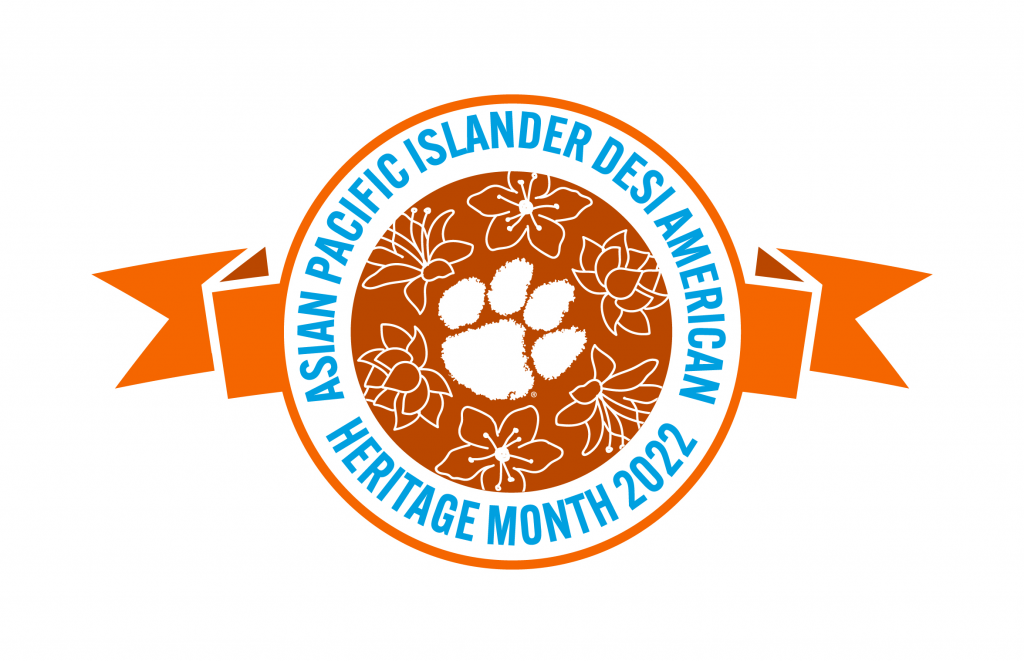
In April, Clemson University celebrates Asian American Pacific Islander Heritage (APIDA) Month, a commemoration of the contributions of Asian and Pacific Islanders to the culture, history and achievements of the United States. A national event, APIDA Month began in 1978 with the establishment of Pacific/Asian American Heritage Week by President Jimmy Carter. Extended into a month-long commemoration in 1992, APIDA Month received its current name in 2009.
Asian Americans and Pacific Islanders include individuals of Chinese, Japanese, Korean, South and Southeast Asian, Hawaiian, Chamorro, Samoan, Melanesian, Micronesian and Polynesian descent. They first arrived in America in 1587 and have occupied a unique place in the country’s history. Historically a small minority, APIDA groups are now the fastest growing population in America. Though the majority of people of APIDA descent live in just three states – California, Hawaii and New York – they are increasingly expanding into other parts of the country. While APIDA groups have the highest college graduation rates in America, many also live in poverty, a situation that has grown under COVID-19.
APIDA populations have diverse experiences, some as new immigrants to America and others having been in the country for generations. Viewed in many ways in the American cultural imagination, APIDA communities have often lived with discrimination and stereotyping. However, they possess vibrant and resilient cultures and are actively shaping their own identities through political activism and literary critique. Often seen as coming from societies with different values from American and western society, APIDA communities are also dynamic and experiencing constant change as they seek to become American.
APIDA Month is observed in May across the country, commemorating the arrival of the first Japanese immigrant to the United States on May 7, 1843, and the completion of the First Transcontinental Railroad on May 10, 1869 with Chinese labor, a highpoint in the early Chinese migration to the United States. Clemson University celebrates the month of April, prior to the final exams in May, to foster greater student awareness of APIDA cultures and their history.
In the spirit of APIDA Month 2022, Clemson Libraries showcases 14 new works in our collection from acclaimed Asian and Pacific Islander authors in North America:
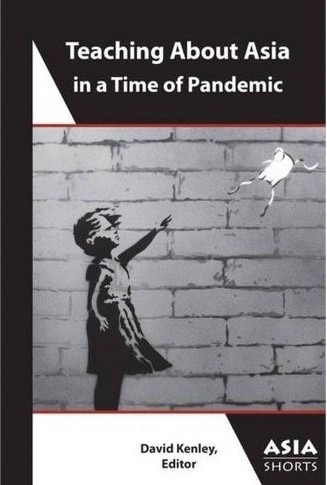
Teaching About Asia in a Time of Pandemic (2021)
In a traumatic and politically charged time created by the COVID-19 pandemic, how should college and high school educators teach about the history, politics, culture, and society of Asia? The volume provides examples of how instructors in the US have tried to teach the complexities of the pandemic and Asia beyond the traditional classroom.
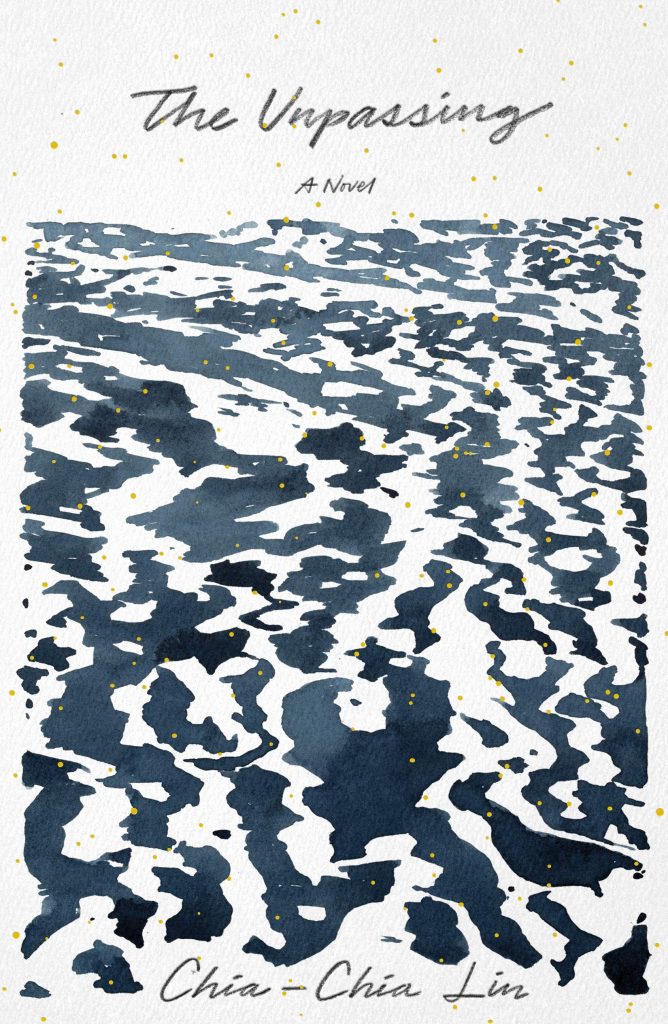
Unpassing (2020)
Named one of the best books of 2020 by TIME, The Washington Post, and Esquire and a New York Times Book Review Editors’ Choice, this novel is a story of alienation, poverty, family and friendship by a Taiwanese family in Alaska during the 1980s.

The Groom Will Keep His Name: and Other Vows I’ve Made About Race, Resistance, and Romance (2020)
A debut collection of tender, biting essays on sex, dating, and identity from a gay Filipino immigrant learning to navigate race and resistance in America.
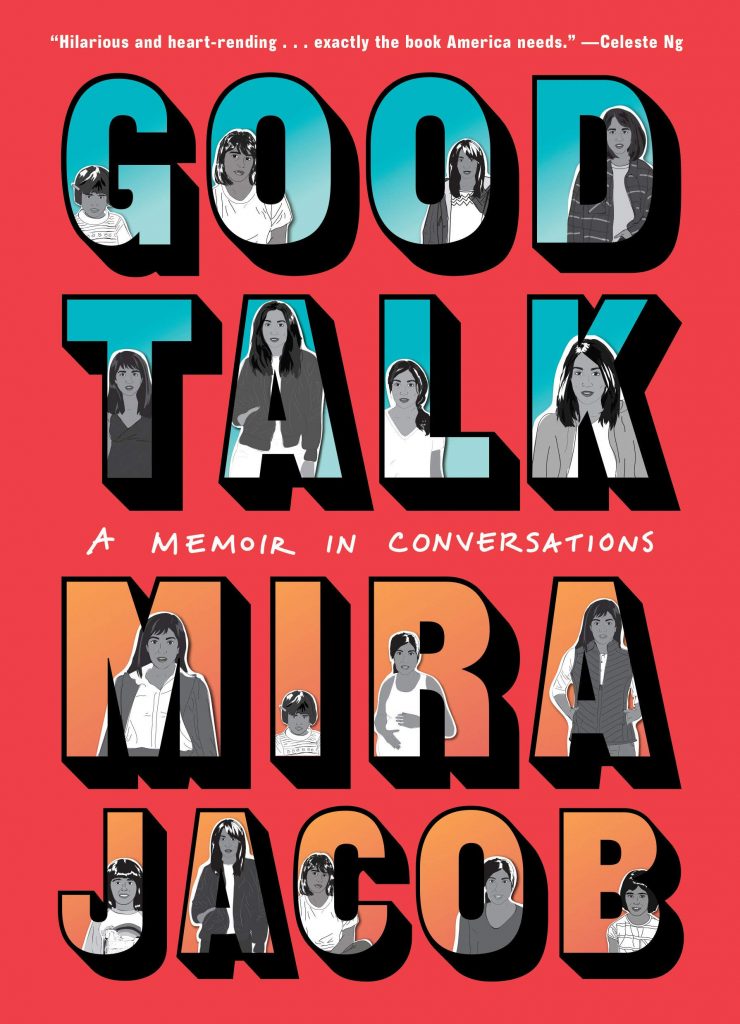
Good Talk: A Memoir in Conversations (2020)
Like many six-year-olds, Mira Jacob’s half-Jewish, half-Indian son, Z, has questions about everything. At first, they are innocuous enough, but as tensions from the 2016 election spread from the media into his own family, they become much, much more complicated. Trying to answer him honestly, Mira has to think back to where she’s gotten her own answers: her most formative conversations about race, color, sexuality, and, of course, love.
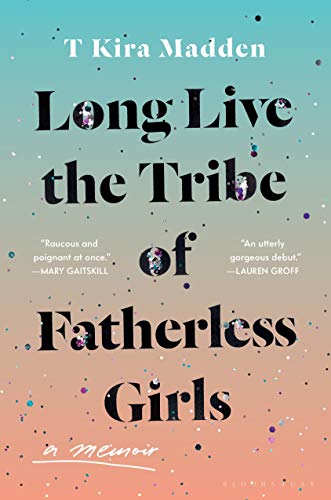
Long Live the Tribe of Fatherless Girls: A Memoir (2019)
Declared one of the best books of 2019 by the New York Times, NPR, Washington Post and other news sources, this memoir covers the coming-of-age story of a Bi-racial Hawaiian girl in Boca Raton, Florida.
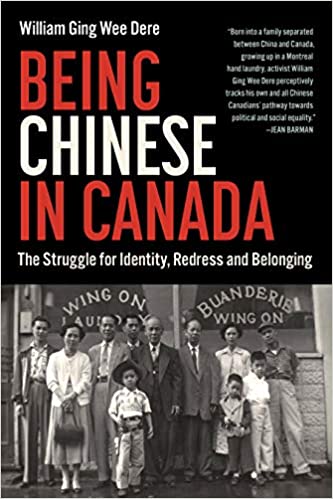
Being Chinese in Canada : the Struggle for Identity, Redress and Belonging (2019)
Semi-autobiographical book of author William Ging Wee Dere’s story in Canada since arriving as a new immigrant in 1956.
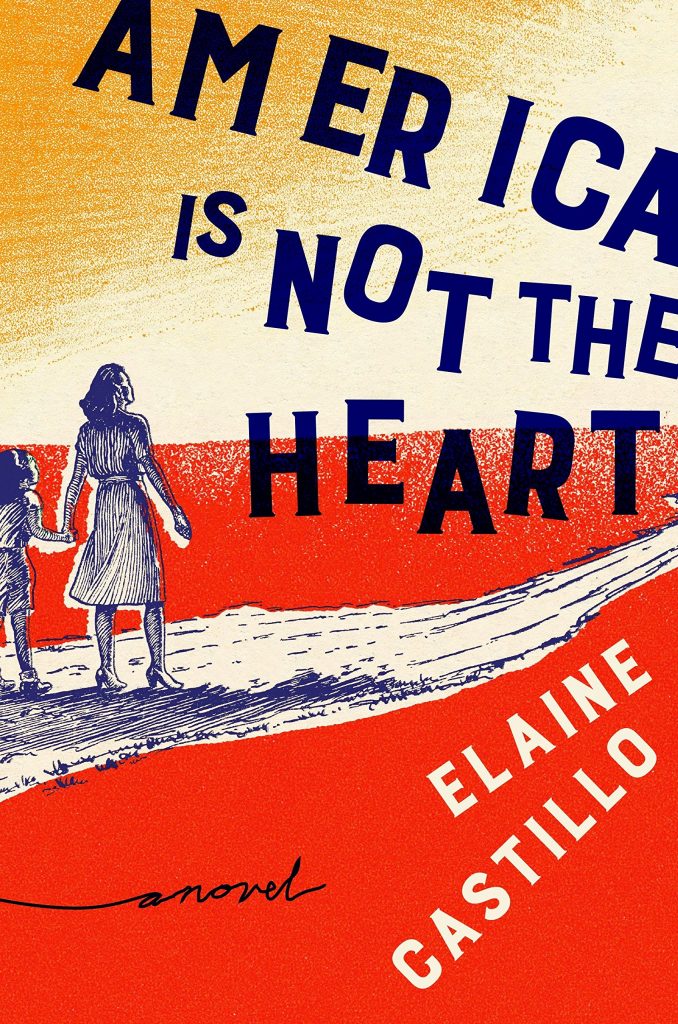
America Is Not the Heart (2018)
How many lives can one person lead in a single lifetime? When Hero De Vera arrives in America, haunted by the political upheaval in the Philippines and disowned by her parents, she’s already on her third. Her uncle gives her a fresh start in the Bay Area, and he doesn’t ask about her past. His younger wife knows enough about the might and secrecy of the De Vera family to keep her head down. But their daughter, the first American-born daughter in the family, can’t resist asking Hero about her damaged hands. Named one of the best books of 2018 by NPR, Real Simple, Lit Hub, The Boston Globe, San Francisco Chronicle and The New York Post.

Erotic Stories for Punjabi Widows (2018)
Nikki has spent most of her life distancing herself from the traditional Sikh community. After her father’s death she takes a job teaching a creative writing course in the heart of the Punjabi community. When one of the women students brings a book of erotica to class, Nicki uses it as the basis for helping these modest women unleash creativity by telling their own stories.
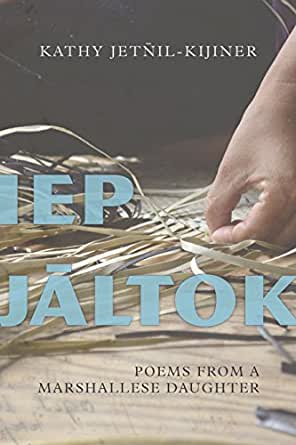
Iep Jāltok : Poems from a Marshallese Daughter (2017)
A collection of poetry by a young Marshallese woman highlighting the traumas of her people through colonialism, racism, forced migration, the legacy of nuclear testing by America, and the impending threats of climate change.
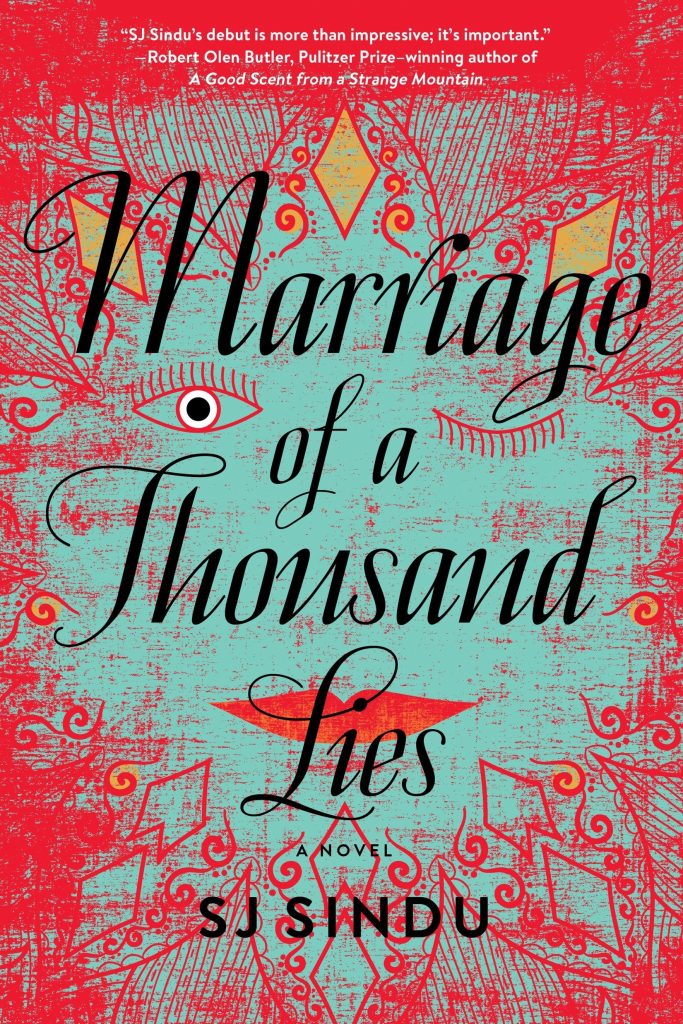
Marriage of a Thousand Lies (2017)
Lucky is an unemployed millennial programmer. Her husband, Krishna, is an editor for a greeting card company. Both are secretly gay, presenting their conservative Sri Lankan-American families with a heterosexual front while dating on the side. When Lucky’s grandmother falls, Lucky returns to her mother’s home and unexpectedly reconnects with her childhood friend and first lover, Nisha. When the two rekindle old romantic feelings, Lucky tries to save Nisha from entering a marriage based on a lie and finds herself pushed to breaking point.
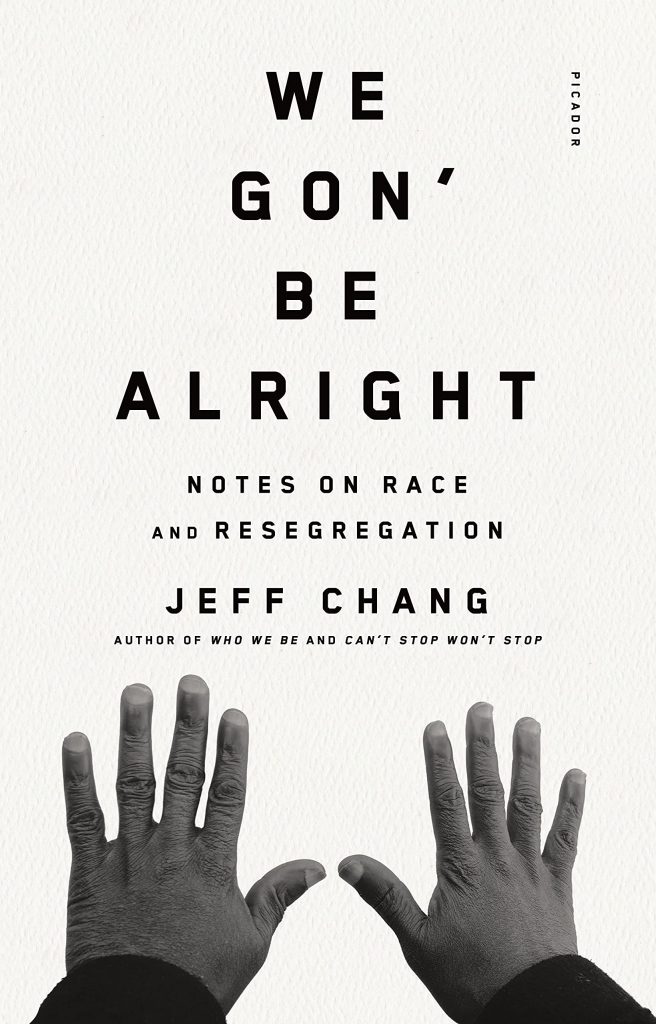
We Gon’ Be Alright: Notes on Race and Resegregation (2016)
In a series of provocative, powerful essays acclaimed writer/journalist Jeff Chang takes an incisive and wide-ranging look at the recent race issues in the United States. Through deep reporting with key activists and thinkers, passionately personal writing, and distinguished cultural criticism, We Gon’ Be Alright links #BlackLivesMatter to #OscarsSoWhite, Ferguson to Washington D.C., the Great Migration to resurgent nativism.
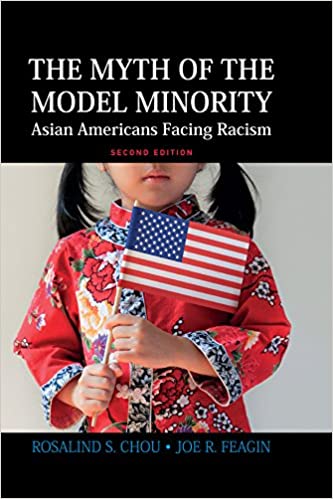
The Myth of the Model Minority: Asian Americans Facing Racism (2015) (Second edition)
The second edition of this popular book adds important new research on how racial stereotyping is gendered and sexualized. New interviews show that Asian American men feel emasculated in America’s male hierarchy. Women recount their experiences of being exoticized, subtly and otherwise, as sexual objects. The new data reveal how race, gender, and sexuality intersect in the lives of Asian Americans. The book depicts the “double consciousness” of many Asian Americans―experiencing racism but feeling the pressures to conform to popular images of their group as America’s highly achieving “model minority.”
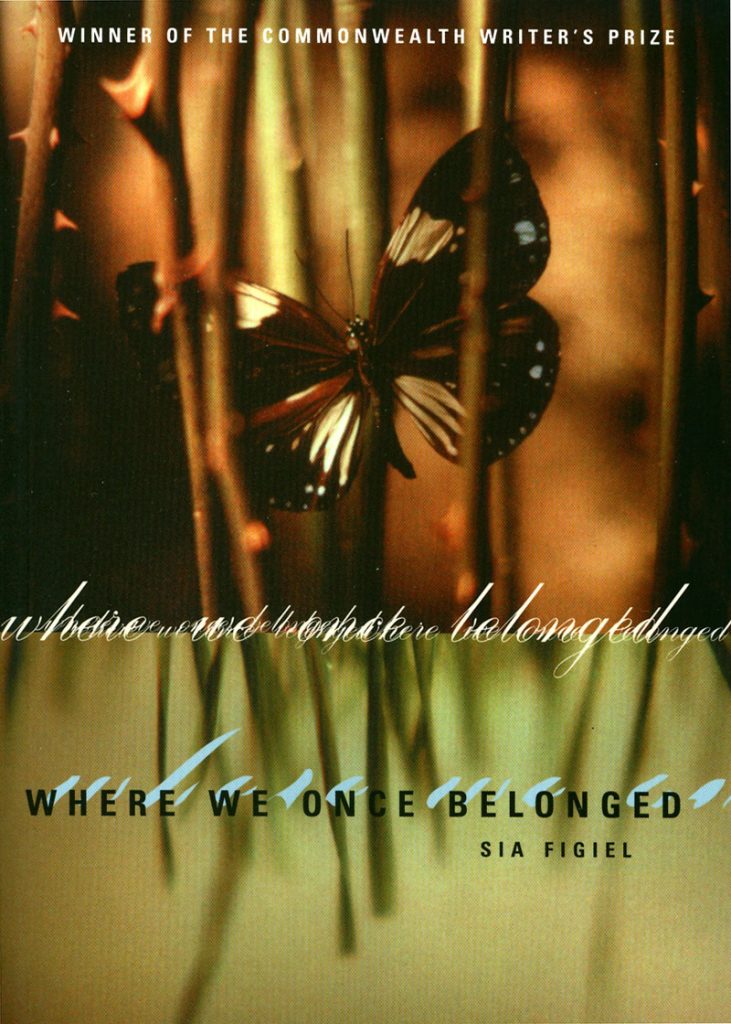
Where We Once Belonged (1999)
The first novel published by a Samoan woman in the United States, this story follows 13-year-old Alofa Filiga as she navigates the mores and restrictions of her village, Malaefou, in the Samoan islands and comes to terms with her own womanhood and search for identity.
The works cover complex issues in the experience of different APIDA groups in America, their adjustment and cultural change, interactions with discrimination and stereotyping, education about Asian communities during the pandemic, and introduces readers to the experiences of Asian and Pacific communities in western societies outside the United States. They, along with other works on the APIDA experience in the library collections, will be on physical display in the Cooper Library in April and available for checkout in May.

